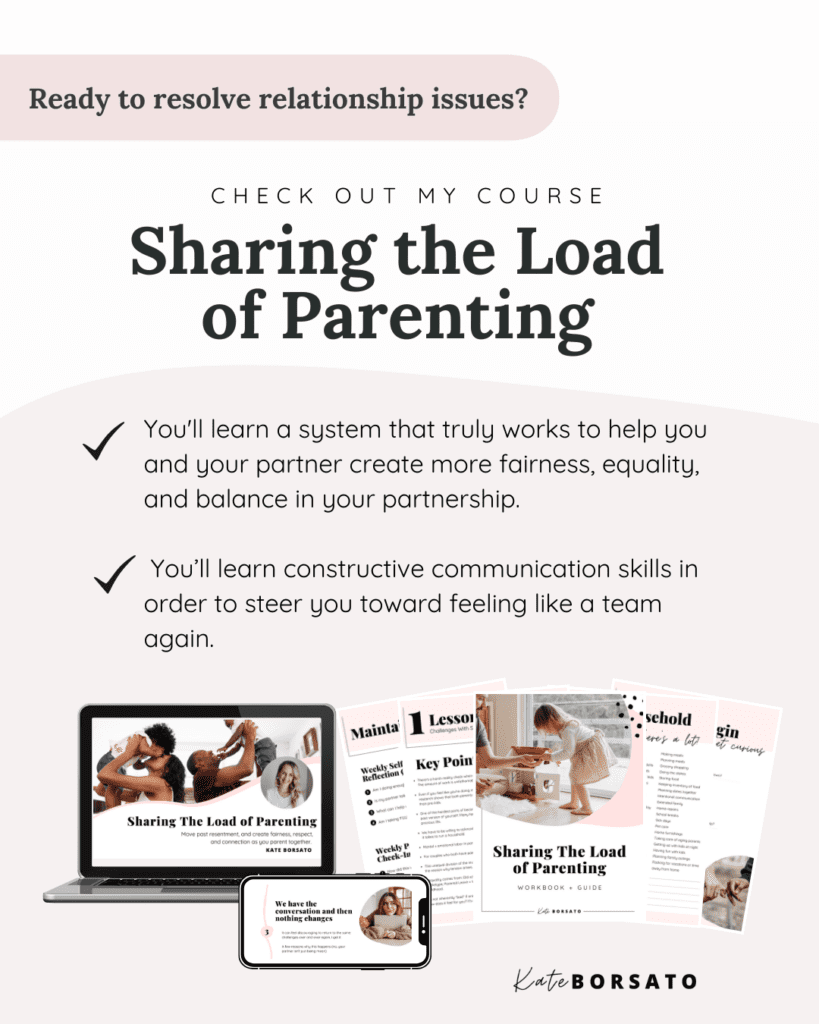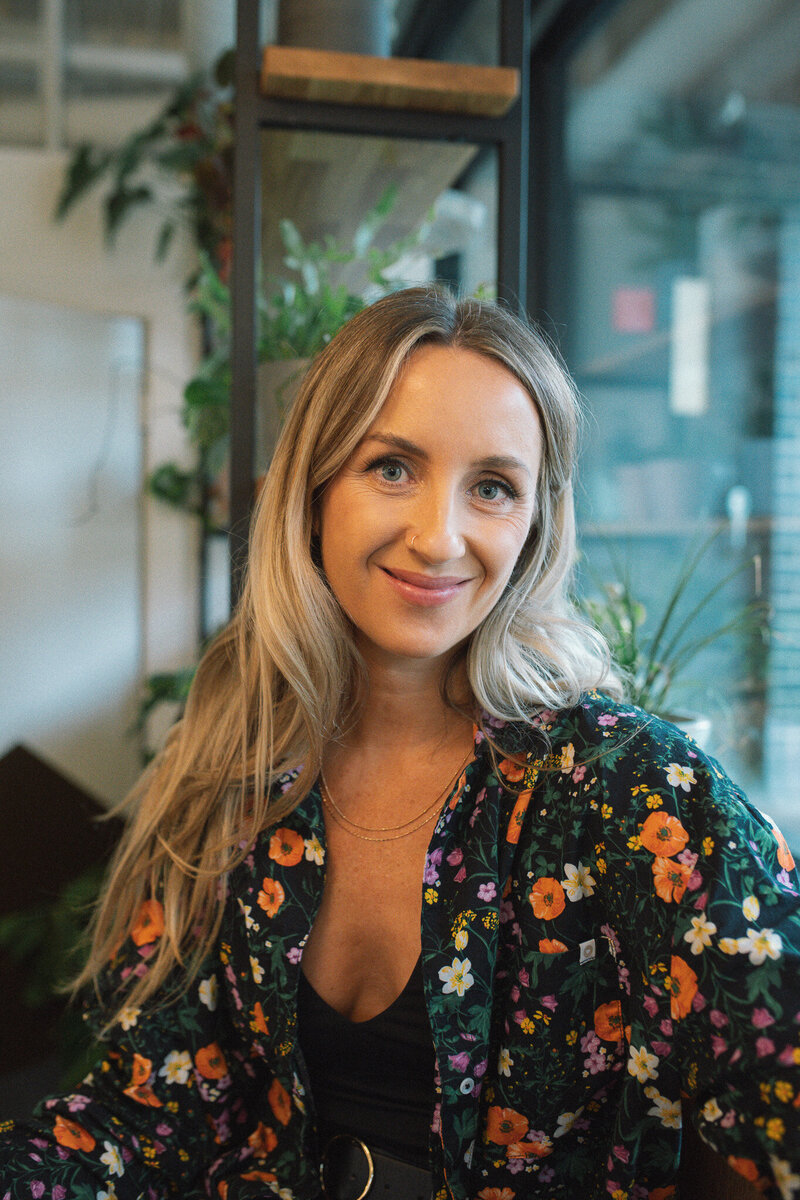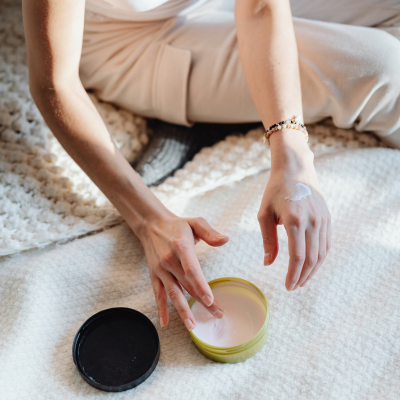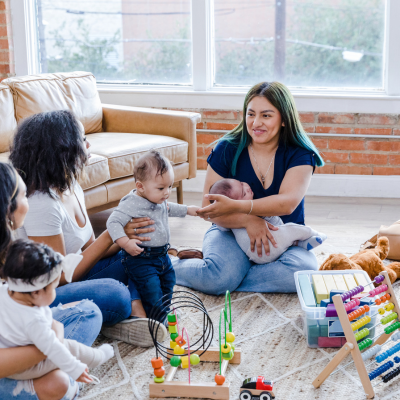I’ve always appreciated the privacy of our inner experience. That running narrative that (thank goodness) only we can hear. During the early years of motherhood, I became especially grateful that I had an “inside voice” that only I had access to.
I remember pacing through my house during those never-ending days, anxiety-filled nights and inconsolable moments with our babies where all I could hear was “I hate you” looping through my mind. I heard it when I woke up sleep deprived with dirty diapers waiting for me. It was there when our kids were cranky and hungry. It was there at 5:00 p.m. as others’ work days were coming to a close while mine had no end in sight. “I hate you,” was such a common phrase in my internal dialogue. And no, I wasn’t talking about the screaming baby.
I was talking about my husband.
I remember the shock of even having these thoughts, followed by worry that they might actually be true. “Is it normal to hate my husband after a baby?” I’d wonder to myself in silence after those rage-y moments. How could I go from loving someone so much, creating little human beings with that person, and then suddenly having such an angry inner dialogue about them? I remember the littlest things would set me off, like if he breathed too loud or left his coffee mug on the counter. I was oozing with anger.
The pre-kids version of myself would have thought, “Yikes, what’s with her? Why all the anger?”
But as a mental health therapist for moms and someone with that much-needed perspective, I know better now. I know that suddenly feeling like you hate your partner after having a baby is much more common than you might think. “Why do I hate my husband or partner after having my baby?” is a question I seriously get alllll the time. A lot of this comes from feeling as though you’re the one always doing the heavy lifting.
Here’s the thing: having children is one of the most stressful things a couple can experience. Research shows that most couples’ relationship satisfaction tanks for a few years after kids enter the picture. The Gottman Institute, a jackpot of research for this season of life, found that 67% of couples experienced an extreme drop-off in relationship satisfaction in the first three years of their child’s life. Now I get that this could sound pessimistic, but my hope is that you exhale knowing that you’re not the only one sitting with a whole lot of negativity and disconnection. It’s not just you and these feelings don’t necessarily mean anything “bad” about your relationship.
I hear similar versions of my experience all the time. Moms share things like: “Everything they do irritates me,” “I can’t even make eye contact with them,” “I’m not sure if I love him anymore,” or “I can’t stand to be in the same room.”
These thoughts can be alarming and make you question your relationship. But just know that there are likely underlying reasons that these intense emotions are bubbling up. Usually, anger is like the tip of the iceberg: there’s always way more going on under the surface.
Why Do I Hate My Husband/Partner After Having A Baby?
Why the sudden anger?
We know that parents with young kids have an incredible amount of responsibility, new roles, endless household tasks, identity shifts and major lifestyle changes that impact the relationship in profound ways. It’s quite possibly the biggest change you’ll ever go through! So much so that parents often talk about “before kids” and “after kids” as the biggest turning point in life.
It goes without saying that having a baby can bring incredible joy, purpose, and love into your life, but let’s also acknowledge how much a mother lets go of once she moves into this new identity. This is often at the core of anxiety and depression: who am I, now? There’s this expectation that a mother’s identity should seamlessly morph from an independent woman into a completely self-sacrificing mother as soon as her child is born. But it doesn’t work like that. She’s still that woman. She’s still herself. She still has needs that are worthy of her energy.
Tap this image to learn more about my course Sharing the Load of Parenting
And she’s freaking mad when there’s no longer room for her.
I recently stumbled across a quote that will forever live in my back pocket: Eve Rodsky, in her book Fair Play, stated: “Resentment grows out of perceived unfairness.” Is it possible that the simmering anger you’re experiencing stems from feeling like everything is on you now? That possibly the division of parenting and household responsibilities isn’t feeling fair?
It’s not just a feeling, it’s the reality for most families. Research shows that mothers are still doing a disproportionate amount of household related work, as well as the bulk of the invisible and mental labor like planning, organizing, preparing, even when both of you are income earners. I stumbled across a recent SELF article which put numbers to this issue in a way I felt hit home: a 2015 study that looked at 182 heterosexual first-time parent partnerships found that women picked up an average of 37 hours of childcare and household-related work each week. That differed from 24 hours for the men. Anecdotally, this feels so common.
You’re fuming because you’re holding too much.
You’re raging inside (and maybe outside) because you can’t seem to figure out how moms actually do it all. It feels impossible. And you wonder why this feels so much harder for you.
You witness your partner experiencing mental freedom, alone time, fun, focus. Things that aren’t really part of your world anymore. Your time feels unimportant. You’re so busy but feel like there’s nothing to show for your hard work at the end of the day. And your workday never seems to end.
It makes so much sense that you’re mad.
What I see clearly in my counselling practice (and with the clarity of personal hindsight) is that “mom-rage” or that shockingly nasty inner dialogue is often a result of unmet needs, and an unsustainable amount of responsibilities weighing on you. Usually, the way through this is to find more support, balance, fairness, and validation within your relationship.
While it’s perfectly normal to feel anger from time to time (you’re human after all), long-standing resentment and steady dissatisfaction in your relationship has serious costs. It begins to chip away at your connection, your joy, and what you hoped this season of your life would feel like. These small bursts of anger or steadily-growing resentment add up over time.
Luckily, I found my way back to myself. We learned how to parent together. My hateful inner dialogue silenced (mostly!). It’s possible, I swear.


Wait a sec! Are you resonating with this story? If you’re ready to dig a little deeper and find a way through this anger, I’ve created an online mini-course that leads you (and your partner) back to connection, healthy communication, and a sense of fairness in your relationship. Is this feeling like a fit for where you’re at in life right now? If so, you can learn more about the program here.


















Comments +